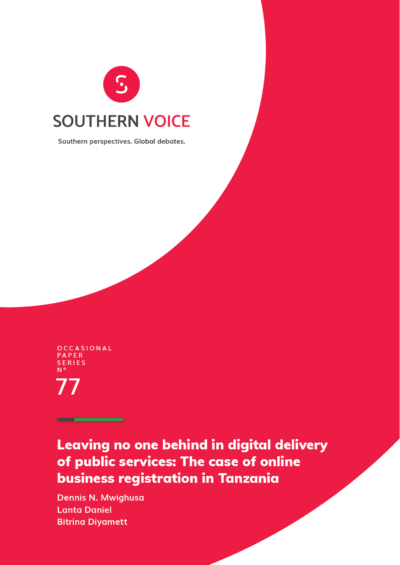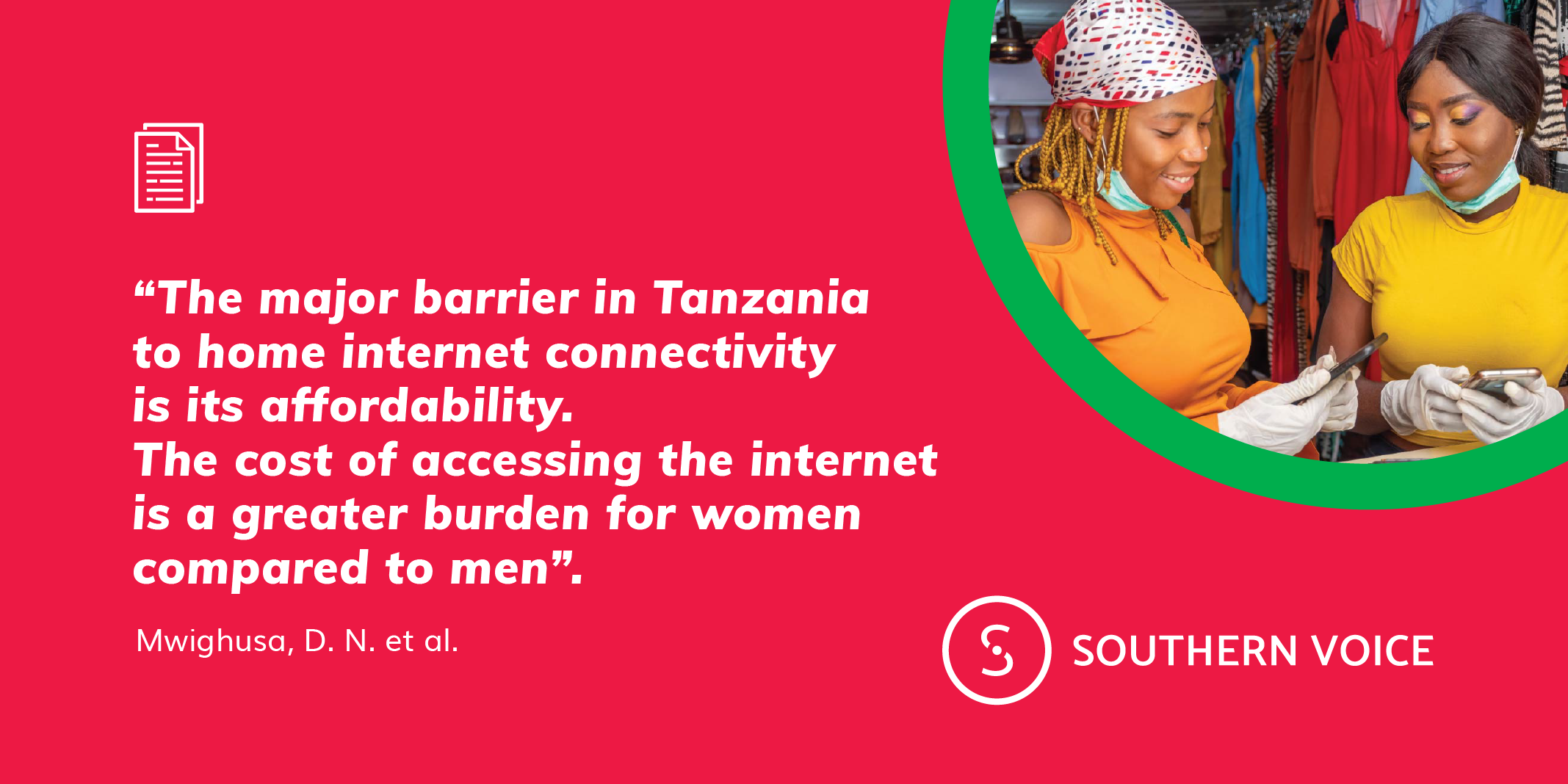The aim is to learn and offer policy recommendations on how to minimize the gendered digital gap.

This study uses the case of online business registration to provide insights on how increased digitalisation in service delivery has impacted women in Tanzania. It analyses the use of ORS, the online registration system created by the Tanzanian government for entrepreneurs to register their businesses online as an alternative to the in-person process. The methodology included an online questionnaire administered via random sampling and a purposive selection of key informants, who offered in-depth information about the key emerging issues.
The findings generally reveal that although women make use of digital tools in their daily activities, there is a substantial access gap between men and women. While many have access to digital tools, especially smart phones, affordability of internet bundles is a major obstacle towards closing the digital divide. Digital literacy both in the use of gadgets and the internet is yet another cause of the digital gap. The study recommends various interventions both at national and global levels to remedy the situation. These include joint action between the government and private sector actors in creating a conducive and inclusive environment for digitalisation; it also calls upon development partners and multinational organisations to prioritise grants and programs that would bridge the digital divide.


